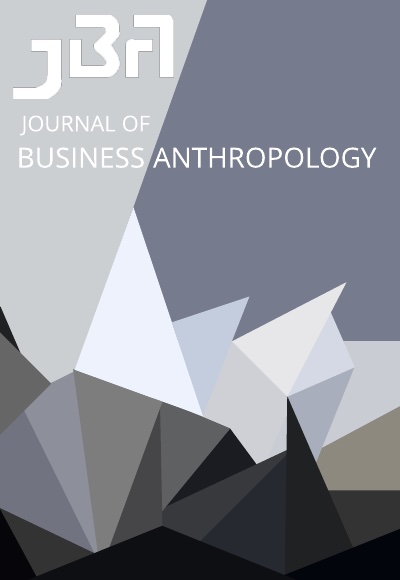Cooperative Entrepreneurship: Future Back Thinking, Translation, and Digital Organizational Change in the Credit Union Space
DOI:
https://doi.org/10.22439/jba.v12i2.7061Abstract
In this essay, I examine cooperative entrepreneurship’s role in driving digital organizational change in a Southern California credit union that caters to a mobile university population. Drawing on Joseph Schumpeter’s interpretative approach to entrepreneurship, I highlight the pivotal role of an innovative CEO in combining a new technology, AI chatbots, with the credit union’s existing technologies to create a new means of production in a contact center: AICCs or Artificial Intelligence Contact Center Agents. I extend Schumpeter’s theory by showing both how future-back thinking can generate ideas for new methods of production, and how acts of translation can help align these methods with local organizational values, overcoming resistance to change. I suggest that such combinatorial activity can help credit unions to sustainably compete against a new breed of financial technology companies known as fintechs.
References
Cooke, S. S. (2021). “The Credit Union Connection with University CU David Tuyo,” March 17. https://www.youtube.com/watch?v=uG7av9WuWoM
Emmons, W. R. and Schmid, F. A. (1999). “Credit Unions and the Common Bond.” Federal Reserve Bank of St. Louis Review 81(5): 41-64. https://doi.org/10.20955/r.81.41-64
Haedicke, M. A. (2012). “‘KEEPING OUR MISSION, CHANGING OUR SYSTEM’: Translation and Organizational Change in Natural Foods Co-Ops.” The Sociological Quarterly 53(1): 44-67. https://doi.org/10.1111/j.1533-8525.2011.01225.x
Johnson, M. W. and Suskewicz, J. (2020). Lead from the Future: How to Turn Visionary Thinking into Breakthrough Growth. Cambridge: Harvard Business Press.
Kline, J. (2019). “Staying Ahead of the Pack: How Collaboration Can Help Credit Unions with Strategy.” CU Management (August 9). https://www.cumanagement.com/articles/2019/08/staying-ahead-pack
Latham, A. (2002). “Retheorizing the Scale of Globalization: Topologies, Actor-Networks, and Cosmopolitanism.” In A. Herod and M. Wright (eds.), Geographies of Power: Placing Scale (pp. 115–44). London: Blackwell. https://doi.org/10.1002/9780470773406.ch4
Nelms, T. C. and Rea, S. C. (2019). The Credit Union of the Twenty-First Century. Madison, WI: Filene Research Institute.
Pfeilstetter, R. (2021). The Anthropology of Entrepreneurship: Cultural History, Global Ethnographies, Theorizing Agency. New York: Routledge. https://doi.org/10.4324/9780367824136
Schumpeter, J. A. (1947). “The Creative Response in Economic History.” The Journal of Economic History 7(2): 149-159. https://doi.org/10.1017/S0022050700054279
Schumpeter, J. A. (1949). The Theory of Economic Development: An Inquiry into Profits, Capital, Credit, Interest and the Business Cycle. Cambridge: Harvard University Press.
Sieber, S. and Guibaud, S. (2022). Embedded Finance: When Payments Become an Experience. Hoboken, NJ: Wiley.
Star, S. L. and Griesemer, J. R. (1989). “Institutional Ecology, ‘Translations’ and Boundary Objects: Amateurs and Professionals in Berkeley’s Museum of Vertebrate Zoology, 1907-39.” Social Studies of Science 19(3): 387-420. https://doi.org/10.1177/030631289019003001
Downloads
Published
Issue
Section
License
Copyright (c) 2023 Matthew J. Hill

This work is licensed under a Creative Commons Attribution-NonCommercial-NoDerivatives 4.0 International License.
Authors who publish with this journal agree to the following terms:
- Authors retain copyright and grant the journal right of first publication with the work simultaneously licensed under a Creative Commons Attribution License that allows others to share the work with an acknowledgement of the work's authorship and initial publication in this journal.
- Authors are able to enter into separate, additional contractual arrangements for the non-exclusive distribution of the journal's published version of the work (e.g., post it to an institutional repository or publish it in a book), with an acknowledgement of its initial publication in this journal.
- Authors are permitted and encouraged to post their work online (e.g., in institutional repositories or on their website) prior to and during the submission process, as it can lead to productive exchanges, as well as earlier and greater citation of published work (See The Effect of Open Access).



